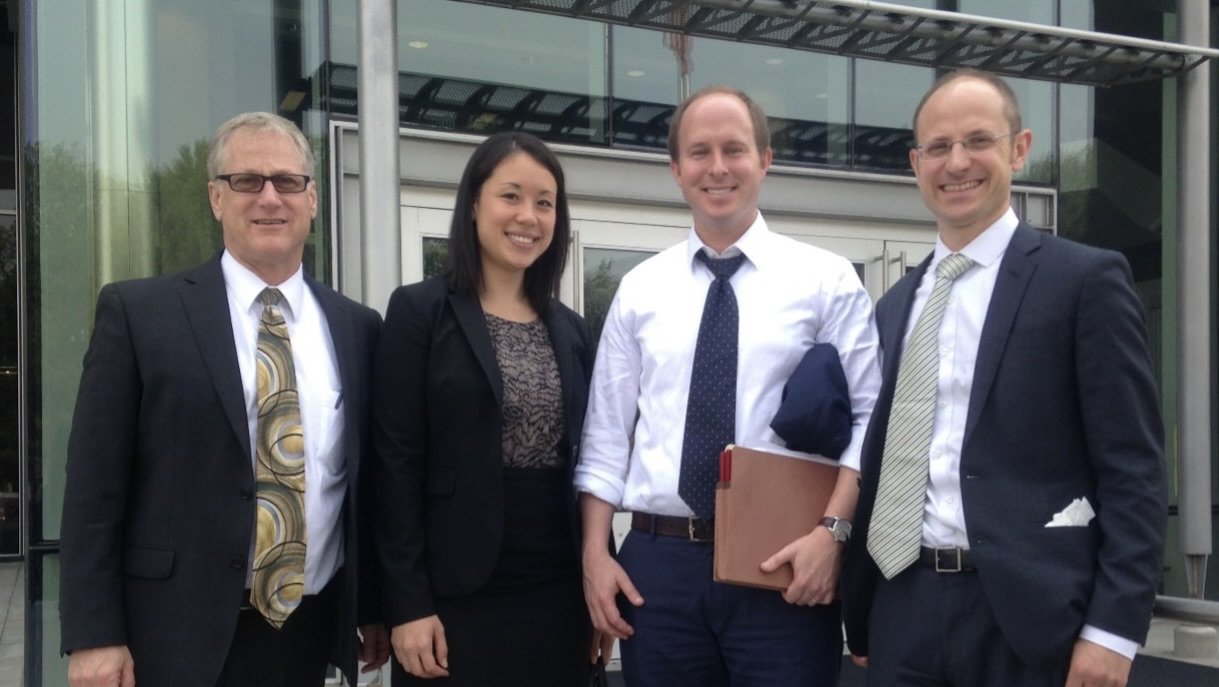Housing Not Handcuffs: Victory In Boise Continues to Resonate Nationally
Eric Tars, Legal Director, National Homelessness Law Center. Photo credit: Melicia Escobar
How A Small Case from Boise Stopped A President from Jailing Homeless Persons Across the Country, and So Much More.
As stories of our country’s failure to adequately address homelessness make national headlines, with incidents like the murder of Jordan Neely on the New York City subway, elected officials are trying to make Americans see things simply, like homelessness as a personal choice, rather than the result of systemic failures. They want to make it a crime to be homeless, with police arresting those who simply don't have a place to live. That's ridiculous, and bad for our whole community. Because no matter your race or background, people don't choose to be homeless, and arresting people experiencing homelessness isn't the answer. The groundbreaking Martin v. Boise case has pushed communities toward the right answer—making sure everyone has a place to call home –since it was decided at the 9thCircuit in 2018.
Janet Bell, one of the original named plaintiffs, talks with VICE News reporter David Enders in 2015. Credit: VICE News
Martin v. Boise was originally Bell v. Boise when it was first filed in 2009 by the National Homelessness Law Center, Idaho Legal Aid Services, and Latham & Watkins. A 2015 blog shares some of Janet Bell’s story as well as the case’s first victory—obtaining a Statement of Interest Brief from the Department of Justice that on its own led many communities beyond Boise to suspend their policies criminalizing homelessness. Janet luckily found housing before the 9th Circuit appeal, so her name dropped from the caption and from the later headlines.
The case’s importance expanded further in the following years under Robert Martin’s name, and with additional plaintiffs Lawrence Lee Smith, Robert Anderson, and Pamela Hawkes, particularly after the 9th Circuit Court of Appeals issued its decision in the appeal in 2018, not only affirming plaintiff’s standing to bring their claims, but also holding what should be an uncontroversial position: “as long as there is no option of sleeping indoors, the government cannot criminalize indigent, homeless people for sleeping outdoors, on public property, on the false premise they had a choice in the matter.” As a result, some communities immediately stopped enforcement and began taking steps toward shelter and housing.
Advocates in Santa Cruz protest encampment sweeps using Martin v. Boise as a tool. Photo credit: Shmuel Thaler
The full impact of the case was not felt until after the petitions for rehearing en banc and at the Supreme Court were denied. First and foremost, in late 2019, then-President Trump had begun planning a strategy of forcing homeless persons into relocation camps under threat of arrest. The Supreme Court letting the Martin decision stand put an immediate halt to those plans, preventing the mass violation of millions of Americans basic civil rights. On the positive side, recognizing that communities in California could no longer rely on criminal law enforcement to push homelessness out of public view, California Governor Gavin Newsom devoted his 2020 State of the State Address to homelessness, pushing out billions of dollars in new funding for housing, shelter, and services, and many local communities did as well.
Meanwhile, the legal impact has spread, with more than fifty courts both inside and outside the 9th Circuit citing to Martin in ruling favorably toward homeless plaintiffs, including this touching story of Patrick McArdle literally bringing the Martin decision from the streets of Ocala to the Florida courts. The 9th Circuit itself reaffirmed the Martin framework in 2022 in Johnson v. Grants Pass, clarifying that Martin applies not just to immediate criminal charges but civil charges that could result in later criminal punishment.
The Martin (then Bell) v. Boise trial team in front of the court house in 2015: Howard Belodoff, Idaho Legal Aid Services; Katie Cheng and Scott Jones, Latham & Watkins; Eric Tars, National Homelessness Law Center. Photo credit: Eric Tars
Martin was finally settled in February 2021, resulting in new protections from enforcement for people sleeping on Boise’s streets in the absence of adequate shelter, and—even more importantly—more than $1.3 million in funding from the city devoted to ensuring people would not need to sleep on the streets in the first place. Housing, not handcuffs was always the goal of plaintiffs and their attorneys, both in Boise and beyond: Martin v. Boise should not be seen as a limitation on what communities can do, but an opportunity to finally take the less-politically-convenient, but much more effective steps to SOLVE homelessness, rather than just try to arrest it out of public view.




